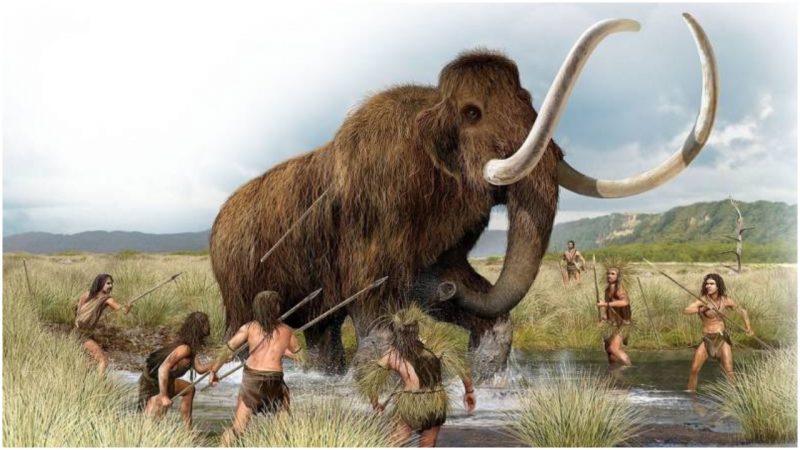4 .36 million years. At a rate of 20 per hour, 40 hours per week, 52 weeks per year, and assuming that you didn’t spend a penny of your income on frivolous things like food, or rent, or taxes, that is how long you would have to work in order to acquire a net worth equal to that of Jeff Bezos, founder and CEO of Amazon. 4.36 million years. Our primate ancestors didn’t swing down from the tree, and learn to walk fully upright until 2.9 million years ago.
Over half of the world’s wealth is owned by just 1% of the population, and 85% of the world’s wealth is controlled by just 10% of the population (almost everyone in North America is included in that 10%, by the way). This, while half the planet subsists on less than $5 per day.
What drives a person to hoard so much wealth that with it, virtually anyone reading this could maintain their current lifestyle for anywhere between 1.5 and 7.5 million years?
A preacher on Sunday morning would say that it’s because a snake once tricked a woman into eating an apple. Sigmund Freud might suggest that it’s because they’re compensating for a little something they’re…. lacking in the pants. Epictetus or Marcus Aurelius would muse that they’re simply not using their faculties in the way that nature intended.
I myself would argue that it’s because they’re using their faculties EXACTLY as nature intended, however those faculties are being used in an environment in which nature didn’t intend for us to live.

You see, every species hoards wealth in one way or another. The squirrels up in the trees fill their nests to the brim with nuts, and seeds, and acorns to ensure that they have enough food for the coming winter. Bears emerge from hibernation in the spring, and immediately begin gorging themselves on wild berries and fresh salmon to put on enough fat to get them through the next hibernation cycle. Even the wild grasses in the prairies and savannas have root systems that dig down 10, 15, even 20 feet below the surface. As the root systems grow and regrow, they carve channels that allow rainwater to penetrate deep into the soil, where it can be stored for times of drought, rather than allowing it to run off into the nearest river.
Likewise, our prehistoric ancestors would lay freshly picked berries, and thin slices of meat out in the sun, or over the smoldering coals of a campfire to remove all the moisture that bacteria need to thrive. Sometimes they would take it a step further, and grind it into a fine powder, mixing in a little bit of rendered animal fat to create a nutrient dense food called pemmican, which had a shelf life of several years when kept dry.
Greed is nothing more than a survival instinct. In nature, too much food is always better than too little.
However, nature is wise, and she balanced out our instinct for greed with the fact that natural wealth has an expiry date. It made no sense for a tribe to wipe out an entire population of bison, because even the best preserved meat would rot before it could be used, leaving nothing to hunt in future seasons. Likewise, it made no sense for a tribal chief to keep all the food for himself, tossing aside a few gnawed upon bones for the rest of the tribe to fight over, because that too would rot before he could eat it.
Hunting large game animals with nothing more than pointy sticks requires a group effort. There’s a video on YouTube of modern tribes hunting an elephant with spears, and it’s a gruesome, and dangerous task. Tribal leaders knew that unless the whole tribe was well fed, well nourished, and in peak physical condition, then he would end up starving right alongside them.
Gold does not rot, however. Silver does not go stale. Rubies do not go mouldy. Our transition from a hunter-gatherer society to an agricultural-industrial society meant that for the first time in human history, a person could amass more wealth than they could use in multiple lifetimes, let alone in a single season.

Jeff Bezos does not care that the immigrant working in his warehouse for minimum wage lives in a constant state of fight or flight, thanks to a computer system that tracks his every move to ensure that he keeps working like a robot. The Walton family does not care that the single mom working as a cashier leaves work every day with sore feet, and an aching back, yet STILL has to stop by the food bank on her way home just to feed her children.
They don’t care because they don’t NEED to care. Civilization has allowed us to bypass the safeguards that nature put in place to ensure that we look out for those under our leadership. Society could collapse tomorrow, and Jeff Bezos and the Waltons would continue to spend the rest of their lives in the lap of luxury, with a few faithful servants to grow them food on their private estates, while they watch the rest of the world burn.
In the 1950s, when my grandfather was celebrating the birth of the baby girl who would one day become my mother, CEOs brought home approximately 20x more than their average employee. In those days, single income families were the norm, and a working class man could earn enough to support a wife, 2-3 kids, and a few luxuries. Today CEOs bring home in the ballpark of 350x more than their average employee, while households now require two working parents just to make ends meet.
How do we address the problem of the disappearing middle class, and the ever increasing gap between rich and poor?
I would propose that rather than a system which forces us to pit our genuine desire to do good against our powerful instinct for greed, we instead need a system that works WITH our instincts by once again making wealth perishable unless we care for those under our authority. Laws that make it within the best interest of the wealthy to ensure that those whom they employ are well paid.
One such system might be a set of tax laws whereby a CEO’s tax bracket is determined NOT by how much they bring home in a single year, but is instead determined by how much they bring home in a single year RELATIVE to their employees. If they bring home 1, 2, 3x more than their average employee, they’re in the lowest tax bracket. If they bring home 20x more, they’re in the second highest tax bracket. Anything beyond that threshold would then be taxed at a rate of 100%, and would be ineligible for tax refunds for charitable donations. The CEO can still take home a $3 million paycheque if the shareholders see fit, but it now means that if they want to keep the majority of it, that cashier at Walmart gets a $50k paycheque, with relative pay increases all the way up the corporate ladder.
It should be noted that this would benefit businesses as well, as it would now mean that rather than coming into work and doing the bare minimum that they can get away with, employees would now have a vested interest in ensuring that the company is as profitable as possible. The more money the company makes, the more they can afford to pay their CEO, which means the more they’ll have to pay the employees, not unlike a small tribe.
By taking this holistic approach to taxation, we will simulate nature’s wisdom in making wealth perishable, allowing us to once again harness our instinct for greed as a powerful force for good, ensuring that even the lowest members of society are well cared for, and get to partake in their fair share of the wealth that our world has to offer.